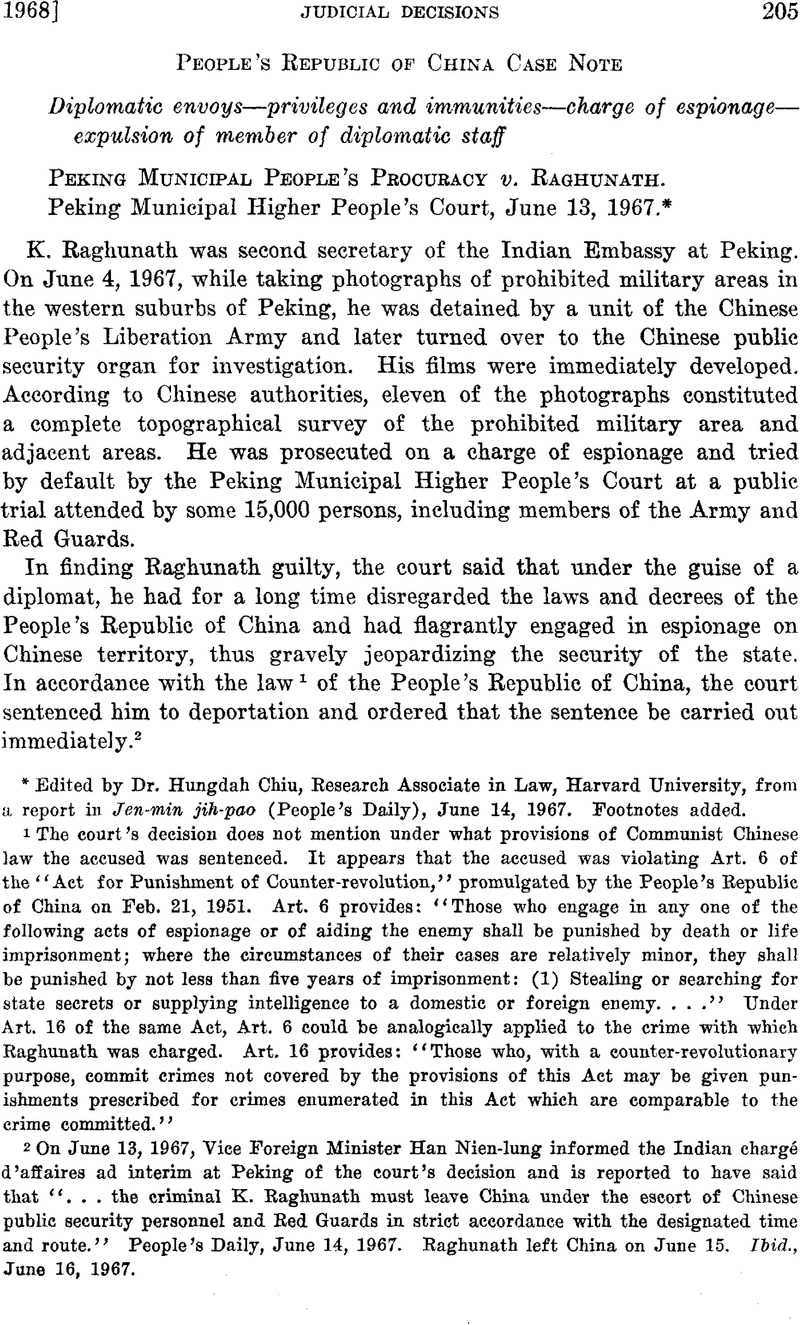No CrossRef data available.
Published online by Cambridge University Press: 28 March 2017

1 The court's decision does not mention under what provisions of Communist Chinese law the accused was sentenced. It appears that the accused was violating Art. 6 of the “ Act for Punishment of Counter-revolution,'’ promulgated by the People's Republic of China on Feb. 21, 1951. Art. 6 provides: “Those who engage in any one of the following acts of espionage or of aiding the enemy shall be punished by death or life imprisonment; where the circumstances of their cases are relatively minor, they shall be punished by not less than five years of imprisonment: (1) Stealing or searching for state secrets or supplying intelligence to a domestic or foreign enemy… . “ Under Art. 16 of the same Act, Art. 6 could be analogically applied to the crime with which Raghunath was charged. Art. 16 provides: “Those who, with a counter-revolutionary purpose, commit crimes not covered by the provisions of this Act may be given punishments prescribed for crimes enumerated in this Act which are comparable to the crime committed.“
2 On June 13, 1967, Vice Foreign Minister Han Nien-lung informed the Indian charge d'affaires ad interim at Peking of the court's decision and is reported to have said that “ … the criminal K. Raghunath must leave China under the escort of Chinese public security personnel and Bed Guards in strict accordance with the designated time and route.” People's Daily, June 14, 1967. Raghunath left China on June 15. Ibid., June 16, 1967.